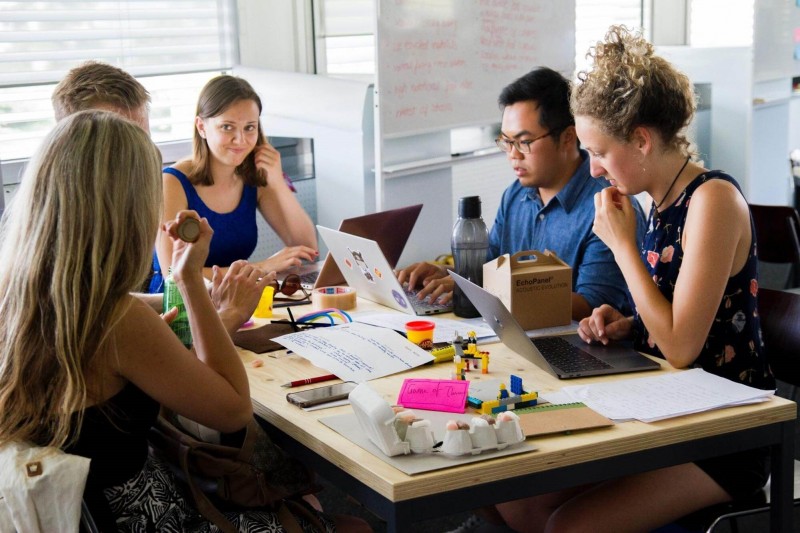
Image credit: jobstreet
KUALA LUMPUR: While climate change and diversity in the workplace have distinct challenges, they both have notable similarities as they result in social and business impact, says Datuk Ami Moris, who is chair of 30% Club Malaysia and Maybank Investment Banking Group (Maybank IBG) chief executive officer.
“Each is a source of imminent pressure for companies, from multiple stakeholder groups including investors, employees, governments and clients,” she said at an online discussion entitled “Climate Action powered by Diversity, Equity and Inclusion (DEI)” here recently.
Based on a report by international management consulting firm Oliver Wyman, Ami said women are the most likely changemakers for climate action.
“Some 40% of the total global wealth is held by women, and women are more likely to consider environmental, social, and governance in investments.
“Two-thirds of global household spending is controlled by women, and 75% of women consider environmental impact in their purchase decisions,” said Ami.
She said that less than 2% of global climate investment was gender tagged in 2021, leaving women often without a voice in international dialogue and policy-setting conversations.
The discussion’s corporate sponsor was Maybank, while the event partners were Securities Commission, Bursa Malaysia, Minority Shareholders Watch Group, Institute of Corporate Directors Malaysia and Climate Governance Malaysia.
Ami was in discussion with Rupal Kantaria, who is the head of climate change at 30% Club United Kingdom and a partner at Oliver Wyman, who pointed out that issues such as having more women in leadership roles and action on climate change, it is really “about changing the entire environment and culture of an organisation.”
“It’s really about thinking about leadership in a much broader way. Similarly, when we think about climate action, it’s not just about switching from petrol or diesel to an electric car. It’s about the behaviour shift of everybody in society,” said Rupal.
Meanwhile, a discussion entitled “Growing Money on Trees” was moderated by Maybank IBG head of sustainability research Jigar Shah, with the panellists Dr Koh Lian Pin, who is director of the National University of Singapore’s (NUS) centre for nature-based climate solutions, and Dr Dzaeman Dzulkifli, who is executive director at the Tropical Rainforest Conservation and Research Centre.
Koh said: “Understanding the science is important because the science underpins our estimate or understanding of the amount of carbon credits and the amount of climate mitigation potential that nature’s ecosystems are delivering to us.
“That in turn underpins some of the economic considerations, both with regards to the costs of implementing these solutions, as well as the potential of new economic opportunities.”
Dzaeman pointed out that technology has greatly reduced the workforce cost and improved the accuracy of data estimates in forest-based projects.
“With light detection and ranging remote sensing technology, we have been able to screen vast tracts of forest, so that definitely brings down the cost and increases the accuracy of some of these projects,” he said.
Another discussion entitled “Re-imagining Leadership for DEI” was moderated by Climate Governance Malaysia chair Datin Seri Sunita Rajakumar, and the panellists were Karina Litvack, who is the founder and chair of Climate Governance Initiative, Tanah Sullivan, head of sustainability at GoTo Group and social activist Datuk Dr Hartini Zainudin, who is a member of the National Recovery Council.
Litvack said companies’ management and shareholders need to think differently about what is commercially viable because if something is not sustainable from a climatic or workplace equity perspective, which includes issues of gender, indigenous people, different ethnicities and sexual orientations, “then it cannot be commercially sustainable. It ultimately comes back to bite you.”
As for Dr Hartini, she said her work involves two different levels of stakeholders.
“One is to persuade corporates to come in and work with us on food security. At the same time, we need to include all these marginalised groups as well, of which many are women,” she said.
Meanwhile, Sullivan said that Indonesian tech giant GoTo Group is undergoing its first ever gender pay audit and part of it involves looking at promoting and supporting women into leadership roles, as well as a talent recruitment pipeline to ensure that more women are going into technical roles.
GoTo Group has the largest digital ecosystem in Indonesia, which comprises on-demand transport, eCommerce, food and grocery delivery, logistics and fulfillment, and financial services through the Gojek, Tokopedia and GoTo Financial platforms.
“We’re at the forefront here in Indonesia on electric mobility. We’ve had to invest millions of US dollars into helping support our driver partners’ shift to electric mobility, and on top of that, work with the state power grid to ensure that even the charging and battery swapping stations, are renewable energy powered as well,” said Sullivan.
“I hope that we can continue to work on this and consider all the stakeholders in our ecosystem as it relates to how we transition to carbon neutral operations as a company.”
Source: https://www.thestar.com.my/business/business-news/2022/10/25/workplace-diversity-has-impact-on-businesses

